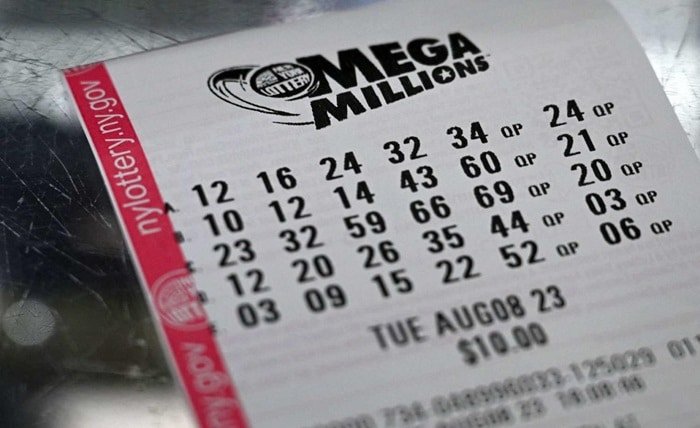The Fascinating World of Lottery, Lottery, and Lotology: The Trends and Science Behind It

Introduction
The world of lotteries has fascinated people for centuries, offering dreams of instant wealth and changing lives with a single ticket. But as the world progresses, a new term, “lotology,” has emerged, blending together the science, patterns, and statistical analysis behind the lottery’s unpredictable nature. In this blog post, we will explore the history of lottery, lottery trends, and delve into the intriguing concept of lotology, which seeks to bring a scientific approach to understanding lottery outcomes.
Lotteries have always been about luck, but with the rise of lotology, the narrative is slowly shifting towards data, probability, and prediction. This blog will break down the fundamentals of the lottery, explore the intersection of mathematics and luck, and give you a detailed insight into the evolving concept of lotology.
The Evolution of Lottery: From Ancient Times to Modern-Day Games
The concept of the lottery has deep historical roots, tracing back to ancient civilizations. Lotteries were originally used as a method to fund government projects or distribute land, with a strong element of chance deciding the outcome. The early form of the lottery was very different from today’s high-stakes national games. However, what remained constant was the lottery’s ability to captivate human attention with the promise of unimaginable rewards.
In modern times, lotteries have evolved into organized systems, where tickets are sold, and numbers are drawn at random. Governments and private organizations run these lotteries, with the goal of raising funds for various causes while offering significant prizes to winners. Lotology, as a field, is a relatively new area that attempts to analyze patterns, trends, and statistical probabilities within the seemingly random nature of lotteries.
By examining past lottery data, enthusiasts of lotology try to identify recurring patterns and trends that could, theoretically, increase the chances of selecting winning numbers. However, this approach remains controversial as many argue that the lottery is purely a game of chance.
What is Lotology? Exploring the Science Behind the Lottery
Lotology is an emerging discipline that aims to apply statistical analysis, probability theory, and data science to the world of lotteries. This field focuses on identifying patterns in lottery number draws, looking for trends that might help predict future outcomes. Though the lottery is typically considered a game of pure chance, advocates of lotology believe that it might be possible to use past results to gain an edge.
The key idea behind lotology is based on the assumption that while each draw is random, over time, patterns might emerge in the numbers drawn. For example, some researchers have suggested that certain numbers or combinations appear more frequently than others, which could give players a better understanding of the game and potentially improve their chances of winning.
While lotology is not universally accepted as a definitive science, its growing presence reflects the ongoing desire to find a logical, systematic approach to something that has long been seen as purely based on luck. By examining historical data and leveraging sophisticated models, lotologists aim to uncover the mysteries behind lottery outcomes.
The Role of Probability and Statistics in Lotology
At the core of lotology lies probability theory. Probability is the branch of mathematics that deals with the likelihood of different outcomes. In the context of lotteries, it helps determine how likely it is that certain numbers or combinations will be drawn.
The role of probability and statistics in lotology is to analyze past lottery results and identify trends that might increase the odds of selecting the winning numbers. Lotologists may analyze factors such as number frequency, the position of numbers in a draw, and the occurrence of consecutive numbers. By examining these statistical elements, they believe they can find patterns that could potentially improve their chances of winning.
However, critics of lotology argue that lottery draws are designed to be completely random. If this is true, then the concept of lotology could be based on false premises. Despite this, the rise of data analytics and its application in various industries has propelled lotology into the spotlight as a field worth exploring.
How Lotology is Changing the Lottery Game
While the lottery is traditionally viewed as a game of luck, the emergence of lotology has altered the way some people approach playing. Many lottery enthusiasts are turning to data-driven strategies in hopes of maximizing their odds of winning. This shift has led to the development of software and tools that analyze past lottery results, helping players to make more informed decisions when selecting their numbers.
One of the major impacts of lotology on the lottery game is the increased focus on statistical analysis and pattern recognition. While some may still see the lottery as a game of pure chance, others are now investing time and resources into understanding the complex interplay between probability, statistics, and human behavior.
Moreover, the advent of lotology has sparked a broader discussion about the role of data and mathematics in games of chance. Can mathematical models really predict lottery outcomes? While no definitive answers have emerged, the growing interest in lotology has undeniably changed the landscape of the lottery world.
The Ethical and Legal Implications of Lotology
As lotology continues to grow in popularity, it raises important ethical and legal questions. If people can truly predict lottery outcomes using data and statistical models, should this be considered cheating? Many lottery systems are designed to be random and fair, and any attempt to manipulate or exploit patterns might be seen as unethical.
Additionally, the legality of using data analysis to gain an advantage in the lottery is a grey area. While using statistical tools to analyze past data may not be illegal, the line between analysis and manipulation can be blurry. In some regions, laws governing gambling and lottery practices are being updated to address these emerging concerns.
As the popularity of lotology grows, it is crucial for regulators and lawmakers to keep pace with technological advancements to ensure that the lottery remains a fair and transparent system for all participants.
The Future of Lottery, Lottery, and Lotology: Where Are We Heading?
The future of lottery, lottery, and lotology seems poised for significant change. As technology continues to advance, more sophisticated data analysis methods will likely become available, allowing lotologists to refine their predictions and identify even more intricate patterns. This could lead to a greater understanding of how lotteries work and, in turn, possibly improve the chances of winning.
However, as technology and lotology continue to evolve, the fundamental nature of the lottery will likely remain unchanged: it is still a game of chance. No amount of statistical analysis can alter the fact that the outcome of a lottery draw is ultimately random. As such, while lotology might provide interesting insights, players should always approach the lottery with the understanding that winning is not guaranteed.
In the coming years, we can expect the debate surrounding lotology to intensify, with more research and development taking place. Whether or not it will have a lasting impact on the lottery world remains to be seen, but it is clear that the intersection of technology, mathematics, and luck will continue to shape the way we think about the lottery.
Conclusion
In conclusion, the world of lottery, lottery, and lotology is filled with intrigue, mystery, and potential. While the lottery has always been about chance, lotology offers a new perspective, bringing data and mathematical analysis into the equation. Although there is still debate over whether lotology can truly predict lottery outcomes, the growing interest in the field is undeniable.
The evolution of lotteries, the rise of lotology, and the integration of probability and statistics all point to a future where the lines between chance and prediction become increasingly blurred. However, despite these advancements, it is essential to remember that lotteries are designed to be random, and the outcome is ultimately out of our control. Whether you play for fun or hope to win big, the lottery will always carry an element of uncertainty, and that’s part of what makes it so exciting.
FAQs
1. What is Lotology, and how does it relate to the lottery? Lotology is the study of patterns, trends, and statistical probabilities in lottery draws. It aims to apply mathematical analysis to predict lottery outcomes, though its effectiveness remains a subject of debate.
2. Can lotology really improve your chances of winning the lottery? While lotology involves using data to analyze past lottery results, it is still uncertain whether it can reliably predict future outcomes. Lotteries are designed to be random, so winning is not guaranteed.
3. Are there legal implications to using lotology in lottery games? The legality of using data analysis tools to predict lottery results is not clear-cut. While analyzing past data might not be illegal, any attempt to manipulate the lottery system could raise ethical or legal concerns.
4. Is the lottery truly random, or can patterns be identified? Lotteries are designed to be random, but lotologists believe that patterns may emerge over time. However, the randomness of lottery draws remains a fundamental characteristic of the game.
5. How has technology changed the way people approach lotteries? Technology has enabled the development of software tools and statistical models to analyze past lottery data. This has led to a more analytical approach to the lottery, with players using data to inform their number selections.




